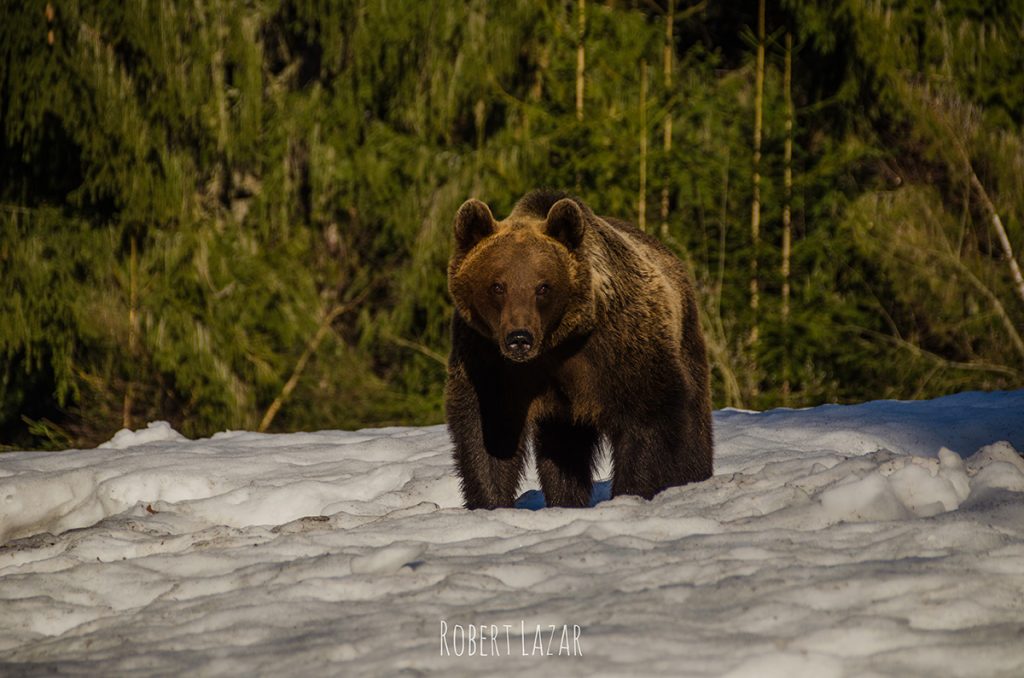Do bears hibernate or not really?
”Do bears hibernate during winter?” is one question we get when we have guests coming to our bear watching tour. People coming to Brasov during winter months are always curious if it’s possible to see these wild animals during wintertime. As you can see in the picture below, sometimes it’s possible. Another question we get is ”What are the chances of seeing them in Romania?”

The chances to see bears in the wilderness (as all our bear viewing tours are) during winter are very low. And here’s why:
During winter, starting with late October or November, depending on weather conditions, bears are sleeping and living out of the fat they accumulate during summer. As opposite to us humans, bears are not unhappy to build fat. They will burn it by doing nothing all winter. And if you think that doing nothing is an amazing way to burn fat,  , don’t forget that that means not eating either. Almost all winter. All they do is sleeping.
, don’t forget that that means not eating either. Almost all winter. All they do is sleeping.
We should not use the word hibernation because the brown bear (Ursus Arctos) doesn’t really hibernate, but go into a deep sleep, called torpor.
Wait, what??
There is a difference between hibernation and sleep?
Yes, there is: as with your windows operated computers (sorry, Apple fans, we’re just trying to explain some things here 


In a deep sleep (remember is called “torpor”) most of body functions have reduced activity. However, vital functions like breathing and blood circulation continue almost unchanged. Brain activity also doesn’t slow down, but goes into a state of permanent awakeness, therefore the bear can wake up at slightest noise. Also their body temperature drops only slightly, while in hibernation there is a drastic change in body temperature. Normal temperature of Carpathians’ brown bear range between 36.5°C and 37.5°C. During bears’ torpor the temperature drops to 29°C – 34°C.
How do bears survive winter?
The reserves of fat that they build during summer and fall are just enough so the bears can survive the winter, therefore for them to wake up and start looking for food in the middle of the winter is quite dangerous: this is consuming a lot of their low reserves of energy and if they don’t find food they can die in few days. Also when the spring comes they only wake up when is sure to find enough food to survive.
So after reading all these, do you think bears hibernate?
For bear watching in the late fall we recommend the area around Tusnad, where bears are used to lower temperatures allover the winter, so they start the torpor later on. Or if you’re a photographer, the area is perfect for those nice Instagram shots while you enjoy hiking in the colorful forests.
